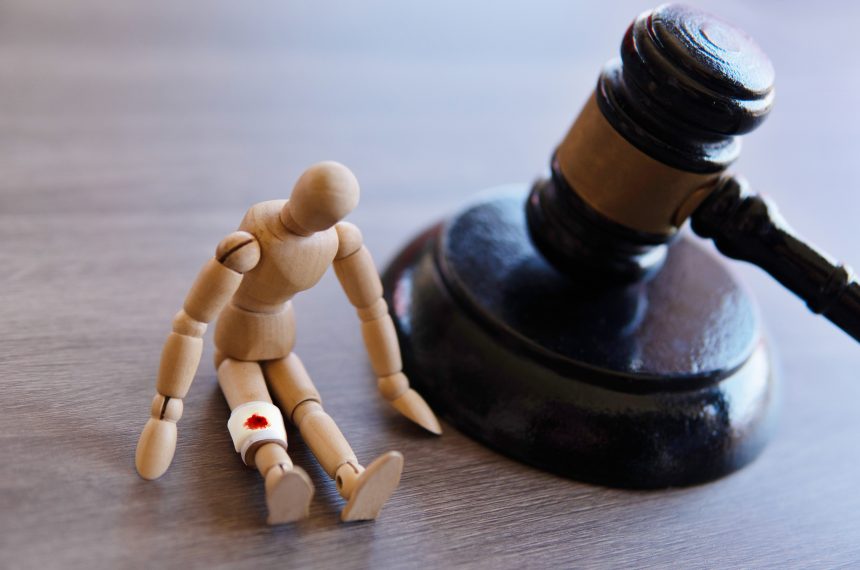Happy To Discuss About Your Requirement? Get a Quote

Personal injury cases can result from incidents like car accidents, slips and falls, medical malpractice, workplace accidents, defamation, assault and battery, and wrongful death.
This overview covers the steps to take in a personal injury case, including seeking medical attention, gathering evidence, filing a claim, negotiating a settlement, and potentially going to trial, helping you navigate the complexities of personal injury law.
.jpg_00.jpeg)
A personal injury case is a legal dispute that occurs when an individual suffers harm from an injury or accident, and another party might be legally responsible for that. These cases often involve claims, damages, and compensation due to negligence.
Car Accidents
Car accidents are common personal injury cases where victims seek compensation for injuries and damages. These accidents can result from speeding, distracted driving, drunk driving, adverse weather, or mechanical failures. Filing a claim involves gathering evidence, documenting injuries, and negotiating with insurance companies.
A skilled personal injury attorney can help navigate legal complexities and ensure fair compensation for medical expenses, lost wages, pain and suffering, and other damages while protecting the victim’s rights.
Slip and Fall Accidents
Slip-and-fall accidents, often due to premises liability issues, can cause significant injuries, leading victims to seek compensation. These accidents occur on another person’s property due to hazards like wet floors, uneven surfaces, or poor lighting.
Property owners must maintain safe environments. For example, if a store fails to clean up a spill causing a slip-and-fall, the injured party can file a claim.
Medical Malpractice
Medical malpractice occurs when a healthcare professional’s negligence causes a patient’s injury or worsens their condition. Examples include surgical errors or incorrect medication prescriptions. Proving negligence requires showing that the standard of care was breached, often with expert testimony.
Victims can claim damages for medical expenses, lost income, pain and suffering, and punitive damages.
.jpg_01.jpeg)
Product Liability
Product liability cases involve injuries from defective or dangerous products. These defects can occur in design, manufacturing, or marketing (e.g., inadequate labeling).
Under strict liability, plaintiffs need only prove the product was defective and caused harm, not negligence. Seeking compensation involves evidence of the defect and injury, often requiring expert testimony.
Workplace Accidents
Workplace accidents, like construction accidents or toxic torts, can result in severe injuries, prompting workers to file personal injury cases. Causes include negligence, lack of safety protocols, or hazardous conditions.
Injured workers may receive workers’ compensation for medical expenses, lost wages, and rehabilitation. State laws vary, so consulting with an attorney is crucial.
Defamation
Defamation involves false statements harming someone’s reputation, leading to personal injury cases for damages. It includes libel (written) and slander (spoken).
To prove defamation, one must show the statement was false, published to a third party, and caused harm. Damages can include compensation for actual harm, punitive damages, and injunctive relief.
Assault and Battery
Assault and battery are intentional torts involving physical harm or the threat of harm. Assault is the threat or fear of immediate harm, while battery is unlawful physical contact without consent.
Victims can seek compensation for medical expenses, pain and suffering, lost wages, and other damages. Filing a claim involves gathering evidence and presenting the case in court.
.jpg_10.jpeg)
Dog Bites
Dog bites can cause serious injuries, leading victims to seek compensation for medical costs and related damages. Owners are often held liable for their pet’s actions. Injuries may include puncture wounds, lacerations, infections, and nerve damage. Pursuing compensation involves documenting the incident and medical expenses, and may require legal advice.
Wrongful Death
Wrongful death claims arise when someone’s death results from another’s negligence or intentional act. The deceased’s family can seek compensation. Proving a wrongful death claim requires showing the defendant’s actions caused the death, the family suffered damages, and a personal representative is appointed for the estate.
Legal professionals can help navigate these claims to ensure justice and compensation for the family.
1. Seek Medical Attention
The first step after sustaining injuries is to seek medical attention to ensure proper treatment and documentation. Timely care aids recovery and provides crucial evidence for your injury claim. Keep thorough records of all medical treatments, including visits, prescriptions, tests, and therapy.
2. Gather Evidence
Collect various types of evidence to support your claim. Take photos of the accident scene, gather witness statements, and obtain police reports. This documentation helps establish the facts and increases your chances of fair compensation.
3. File a Claim
Initiate the legal process by filing a claim to request compensation for your injuries and damages. Gather all relevant documentation, such as medical records and police reports, to prove the extent of your injuries and the liability of the other party. Seek legal guidance to navigate the complexities of personal injury law.
4. Negotiate a Settlement
Engage in settlement negotiations to reach an agreement on compensation without going to trial. Personal injury attorneys play a crucial role in advocating for fair compensation, analyzing the case, and negotiating with insurance adjusters or opposing counsel.
Go to Trial (if necessary)
If negotiations fail, you can go to trial, where a judge or jury determines compensation based on evidence and legal arguments. You can present your case, examine witnesses, and submit documents. Legal representation is essential to navigating complex procedures and advocating for your rights effectively.
© 2025, Alpha Law Group